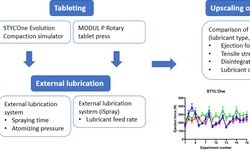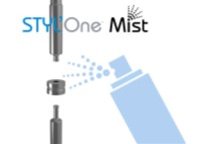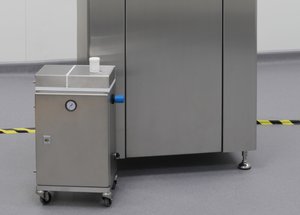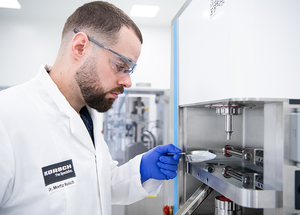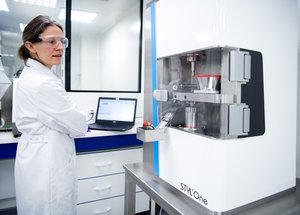Scientific papers
The internal blending of magnesium stearate is often linked to a reduction in tensile strengths and extended disintegration and dissolution times. Consequently, external lubrication has gained attention in the pharmaceutical industry as a potential method to minimize these adverse effects. This study explores an external lubrication system implemented in a compaction simulator. Two process parameters, spraying time and atomizing pressure, related to the external lubrication system were investigated, utilizing four common fillers and two model drugs. The impact of these parameters on the responses, particularly ejection forces, was analyzed. Interestingly, the external lubrication system parameters significantly influenced ejection forces, but no detrimental effects were observed on tensile strength and disintegration time, as comparable values were obtained in comparison to non-lubricated experiments.
Furthermore, external lubrication yielded equal or lower ejection forces when utilizing a lower concentration of magnesium stearate compared to internal lubrication. Internal lubrication had previously shown a decrease in tensile strength and prolonged disintegration for most formulations. The observed results could be linked to the wall friction angle, compaction properties, and tablet brittleness index of the raw materials and blends. This study highlights the potential of external lubrication as an alternative method for formulations sensitive to traditional lubrication techniques.
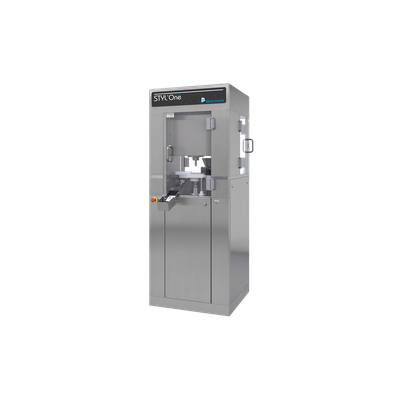
Comments
No comments posted yet.
Add a comment


